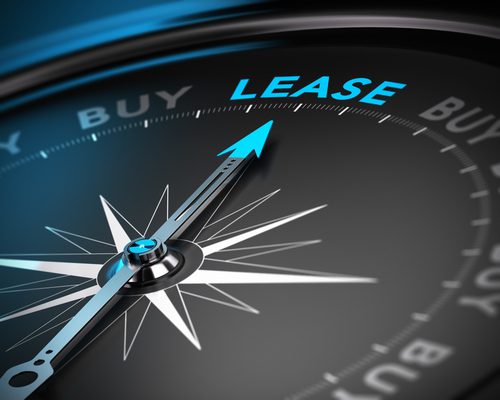Leasing Vs. Ownership

Owning equipment vs. leasing equipment is always an important business decision. Each firm or company is faced with different set of financial constraints which will impact their decision. Market fluctuation in the specific industry often helps aid the decision.
There are several factors that can be considered when buying vs. leasing equipment. This can be decided by considering rental or machine costs per day as well as number of days the machine will be used. Consider the acquisition cost, depreciation rate and cost per year, and resale. Finance amount, length, and rate to be computed of the lease or purchase. Also, transportation and maintenance cost associated with the operations of the purchase.
There are advantages to leasing equipment such as a much lower initial expense. Initial cash flow can be significantly less due to common less down payment money. Lease payments are tax deductible also. The payment terms can be very different between leasing and owning. Often the leasing route can yield more lenient terms. In an industry that is rapidly developing and constantly requires new machinery leasing may be a better choice. The resale on something such as electronics when new technology is being developed is often very low. Buying a piece of equipment that constantly needs to be replaced is often not a good business endeavor. Maintenance of the leased or rented equipment often saves money due to the rental companies requirements to fixing the problem.
On the contrast there are obviously flaws or disadvantages to a leased piece of equipment. The initial cost may be less to lease but the long term cost of leasing is usually higher then loan to buy. And instead of using the tax deduction that comes along with the lease of the equipment there are incentives for newly acquired assets. Signing into a new lease can put large restraints on the requirement to see out the lease term. This may force you to continue leasing due to the fact that at the end of the lease the equipment is not yours. They can offer lease to own terms which can be good for a young business that need the liquidity of cash on hand.
Buying equipment obviously has its disadvantages as well that include the higher initial cost. As stated with the advantage with leasing, buying equipment puts you in a situation of owning the equipment. Often the depreciation with certain types of equipment is very large and the salvage value of the piece is very low. This can be due to several reasons including advancement of the product or very high wear on the machinery.
The major advantage of owning the equipment is the fact that the equipment is actually yours at the end of the loan term or purchase. You can do what you choose with the equipment. Along with this can come more or less investment capital. When initially purchasing the machine the demand for the constant uses of the equipment may have been necessary. Often natural swings in the economy and changing industry trends may lead to lack of necessity of the machine.
There are issues that must be considered when there is an acquisition of a new form of machinery. There is no right or wrong answer to the question of lease vs. buy. Each company must decide what is right for the job requirements. This can be done using simple accounting style formulas to find which form of equipment acquisition is best for your firm.
Works Cited
Written by:
Moe Batlawala
110-889 Harbourside Dr.
N. Vancouver
604 982 3003
604 928 5762 Cell